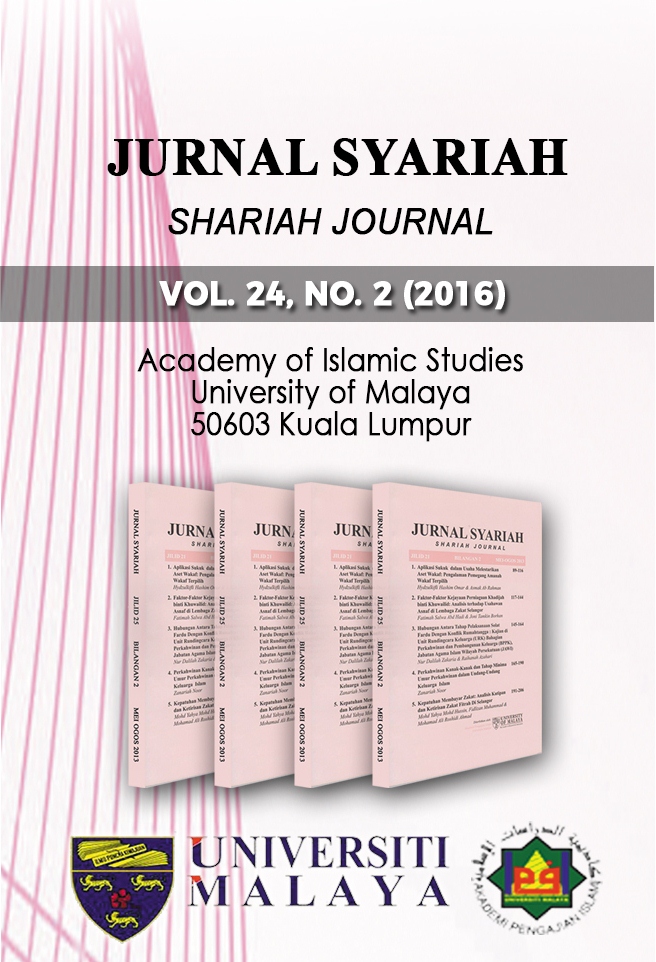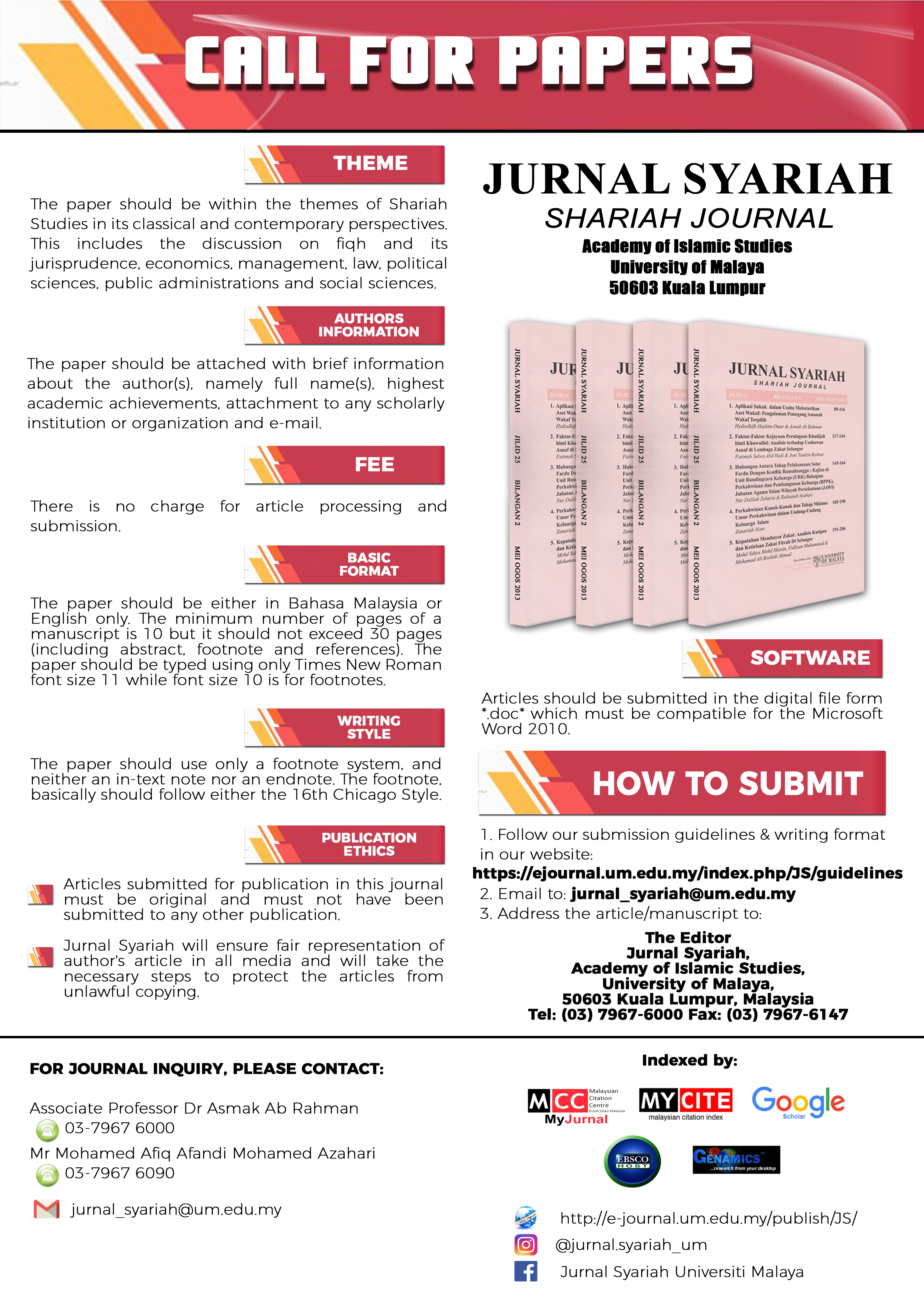MAQASID SHARI'AH: THE DRIVE FOR AN INCLUSIVE HUMAN DEVELOPMENT POLICY
DOI:
https://doi.org/10.22452/js.vol24no2.5Abstract
Access to adequate resource or income, leading a healthy life; and being educated are major components of human development. However, satisfying these components remains a major challenge facing many societies today. Some of the key hindrances to development initiatives are injustice and abuse of fundamental social and economic rights as reflected in the low human development indices of many countries. Conventionally, human development is measured in terms of education, income, and health. Nonetheless, the model does not take cognizance of other integral components of development such as social justice and human rights. Thus, this paper tries to fill this gap in the current literature by incorporating social justice and human rights (exogenous) and three contextualized factors, namely education, health, and income (endogenous) into the human development model based on the Maqasid Sharī‘ah framework. The paper uses document analysis and library based data, whereby both primary and secondary sources are collated. The model proposes that the principles of the Islamic divine law be enhanced to ensure an inclusive development policy devoid of tribal, ethnic or religious sentiments. The paper holds theoretical and policy implications for researchers, policymakers and other stakeholders.
Downloads
Downloads
Published
How to Cite
Issue
Section
License

This work is licensed under a Creative Commons Attribution-NonCommercial 4.0 International License.
COPYRIGHT: All rights reserved. Not allowed to be reproduced any part of articles and contents of this journal in any form or by any way, whether electronic, mechanical, photocopying, recording or otherwise without permission in writing from the Chief Editor, Jurnal Syariah.



















